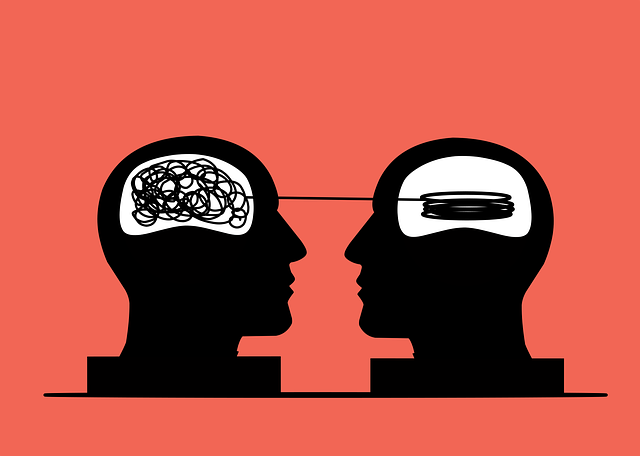Westminster Functional Neurological Disorder Therapy (WFNDT) prioritizes cultural competency as a cornerstone of inclusive healthcare, addressing biases through training and interactive learning. By understanding diverse cultural backgrounds and beliefs, WFNDT tailors therapy for better patient outcomes, especially for complex conditions like FND. This holistic approach integrates stress management, self-esteem improvement, and empathy-building to enhance patient satisfaction and clinical practices, ensuring a respectful and personalized therapeutic experience.
“In today’s diverse healthcare landscape, cultural competency among providers is no longer an option but a necessity. This article explores the critical need for training programs that foster understanding and empathy across cultures. We delve into the potential consequences of unaddressed cultural biases on patient care, highlighted by real-world examples like Westminster Functional Neurological Disorder Therapy. Effective training strategies are discussed, followed by methods to measure success, ensuring healthcare providers can offer culturally sensitive care.”
- Understanding Cultural Competency in Healthcare: A Necessary Approach
- The Impact of Cultural Biases on Patient Care and Outcomes
- Westminster Functional Neurological Disorder Therapy: A Case for Cultural Sensitivity
- Designing Effective Training Programs for Healthcare Providers
- Measuring Success: Evaluating the Effectiveness of Cultural Competency Training
Understanding Cultural Competency in Healthcare: A Necessary Approach

Cultural competency in healthcare is an essential aspect that cannot be overlooked in today’s diverse society. It involves understanding and appreciating the cultural differences between patients and healthcare providers, fostering a more inclusive and effective medical environment. This approach is particularly crucial for conditions like functional neurological disorder (FND), where symptoms can be influenced by psychological and social factors, often requiring a nuanced understanding of individual experiences and beliefs.
At Westminster Functional Neurological Disorder Therapy, we recognize that cultural competency training is not just a nice-to-have but a necessity. By incorporating this into our practices, we aim to improve patient outcomes and satisfaction. This includes learning about different cultural perspectives on health and illness, as well as developing strategies for effective communication and care. Moreover, promoting cultural awareness can help in preventing burnout among healthcare professionals, especially when dealing with complex cases that may involve sensitive topics related to inner strength development and public awareness campaigns.
The Impact of Cultural Biases on Patient Care and Outcomes

Cultural biases, often unconscious, can significantly impact patient care and outcomes in healthcare settings. These biases stem from a range of influences, including personal experiences, societal norms, and media representations. When healthcare providers hold stereotypes or assumptions about patients from diverse cultural backgrounds, it can lead to miscommunication, misdiagnosis, and inadequate treatment plans. For instance, a study revealed that patients with symptoms resembling Functional Neurological Disorder (FND) often face delays in diagnosis due to cultural biases, where their presentations are dismissed as psychological or not credible.
At Westminster, we recognize the critical need for cultural competency training to address these biases. By enhancing our understanding of diverse cultural perspectives and practices, healthcare providers can offer more personalized care. This involves actively listening to patients’ concerns, validating their experiences, and incorporating their cultural beliefs into treatment strategies. Moreover, stress management techniques, confidence-boosting initiatives, and public awareness campaigns development centered around cultural sensitivity can contribute to reducing biases and improving patient outcomes.
Westminster Functional Neurological Disorder Therapy: A Case for Cultural Sensitivity

Westminster Functional Neurological Disorder Therapy (WFNDT) is a leading approach that highlights the critical role of cultural sensitivity in mental healthcare practice. In today’s diverse society, therapists and caregivers must be equipped to navigate complex cultural landscapes to provide effective support for individuals dealing with neurological disorders like depression and anxiety. Cultural sensitivity ensures that therapy sessions are inclusive, respectful, and tailored to each client’s unique background, fostering a safe space for open communication.
Integrating cultural competency into mental wellness coaching programs development is not just beneficial; it’s essential. WFNDT encourages professionals to go beyond surface-level understanding and delve into the intricate web of cultural influences that shape an individual’s experience with neurological conditions. By embracing this approach, mental health practitioners can improve mood management strategies and enhance overall mental wellness outcomes for a diverse range of clients.
Designing Effective Training Programs for Healthcare Providers

Effective training programs for healthcare providers should be multifaceted and interactive, catering to diverse learning styles. Incorporating case studies relevant to Westminster Functional Neurological Disorder Therapy (WFNDT) can help professionals understand real-world applications of cultural competency. These case studies can explore scenarios involving patients from different backgrounds, showcasing how cultural factors influence health outcomes. By engaging in role-playing exercises and group discussions, providers can practice conflict resolution techniques and enhance their emotional intelligence, which is crucial for building rapport with diverse patient populations.
Additionally, integrating self-esteem improvement and anxiety relief strategies into the training curriculum benefits both the healthcare workers and their patients. Learning to manage stress and cultivate a positive mindset enables professionals to provide more compassionate care. This holistic approach ensures that providers are equipped not just with technical knowledge but also with emotional tools to navigate complex interactions, ultimately improving patient satisfaction and outcomes.
Measuring Success: Evaluating the Effectiveness of Cultural Competency Training

Evaluating the success of cultural competency training is vital to ensure its effectiveness and long-lasting impact on healthcare delivery. Measuring success goes beyond simple satisfaction surveys; it involves assessing concrete improvements in patient care, provider attitudes, and healthcare outcomes. At Westminster Functional Neurological Disorder Therapy, we utilize a multifaceted approach to gauge the impact of our cultural competency programs.
This includes pre-and post-training assessments, focusing on knowledge retention, attitude shifts, and perceived competence. We also track changes in clinical practices, such as the adoption of inclusive communication strategies and tailored treatment plans that respect diverse cultural beliefs and preferences. Additionally, feedback from both providers and patients is invaluable, offering insights into how cultural competency training has influenced interactions and outcomes within our Stress Management Workshops Organization and Self-Care Practices initiatives.
Cultural competency training is no longer a nice-to-have, but an essential tool for healthcare providers. As highlighted by examples like Westminster Functional Neurological Disorder Therapy, understanding and respecting diverse cultural backgrounds can significantly improve patient care and outcomes. Effective training programs, designed with a focus on interactive learning and real-world scenarios, are key to fostering cultural sensitivity. By measuring success through participant feedback and improved patient satisfaction, we can ensure these programs have a tangible impact, ultimately enhancing the overall healthcare experience for all patients.









